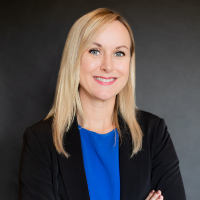 Gloster Reorganization Lawyers, Louisiana
Gloster Reorganization Lawyers, Louisiana
Sponsored Law Firm
-
 x
x

Click For More Info:
-
Simon, Fitzgerald, Cooke, Reed and Welch
4700 Line Ave Ste 200 Shreveport, LA 71106» view mapBankruptcy & Debt Law Experienced Attorneys Serving You
The law firm of Simon, Fitzgerald, Cooke, Reed and Welch has helped thousands of people find true relief from debt through bankruptcy
800-769-0341
Not enough matches for Gloster Reorganization lawyer.
Below are all Gloster Bankruptcy & Debt lawyers.
Sponsored Lawyers
1-8 of 8 matches
Bankruptcy & Debt, Foreclosure, Reorganization, Credit & Debt, Collection
Kelli Cook is a practicing lawyer in the state of Louisiana specializing in Bankruptcy. Ms. Cook received her J.D. from the Louisiana State University Paul M. Hebert Law Center.
(more)Bankruptcy & Debt, Bankruptcy, Commercial Bankruptcy, Bankruptcy Litigation
L. LABAN LEVY is a partner with the law firm of Simon, Fitzgerald, Cooke, Reed & Welch. Mr. Levy graduated from Northwestern State University with a Bachelor of Science degree in Business Administration in 1998 and received his Juris Doctor and Bachelor of Civil Law degree from the Paul M. Hebert Law Center at Louisiana State University Law School in 2002. Mr. Levy's practice is primarily in the area of Consumer Bankruptcy. Mr. Levy was admitted to practice in Louisiana in 2003. He served as Law Clerk to the Honorable Chief Judge Henry N. Brown, Jr. for the Louisiana Second Circuit Court of Appeals from 2003 through 2004. He is a member of the National Association of Consumer Bankruptcy Attorneys.
(more)


 Lars Levy Ste 200 Shreveport, LA
Lars Levy Ste 200 Shreveport, LA AboutSimon, Fitzgerald, Cooke, Reed and Welch
AboutSimon, Fitzgerald, Cooke, Reed and Welch Practice AreasExpertise
Practice AreasExpertise


